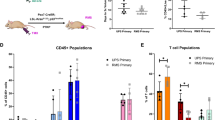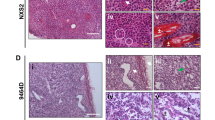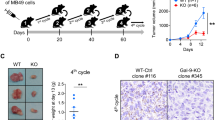Abstract
While it is known that mice with genetic immune defects are useful for establishing durable engraftment of human tumor xenografts, the relative role of components of host innate and adoptive immunity in engraftment has not been determined. We directly compared the ability of four strains of genetically immunodeficient mice (NOD/SCID, SCID, Nude and Rag-1-deficient) to successfully engraft and support the human cell lines Daudi, Raji, Namalwa and Molt-4 as subcutaneous tumors. We additionally examined the effect of further immunosuppression of the mice by whole body irradiation at a dose of 600 cGy for Nude and Rag-1 and 300 cGy for SCID mice and by administration of anti-natural killer (asialo-GM1) antibody on tumor growth. Mice with each of the defects supported xenografts to varying degrees. We found differences in growth characteristics in the cell lines tested, with Namalwa consistently producing the largest tumors. With all cell lines studied, optimal growth was achieved using NOD/SCID mice. Overall, tumor growth was somewhat enhanced by pretreatment with radiation with little additional benefit from the addition of anti-asialo-GM1 antibody. The importance of multiple components of the innate and adoptive immune system in xenotransplantation were best demonstrated when results in untreated NOD/SCID mice were compared to SCID, nude and RAG-1-deficient mice. The NOD/SCID mouse with or without additional immunosuppression provides the optimal model for the study of the biology and treatment of human leukemias and lymphomas.
This is a preview of subscription content, access via your institution
Access options
Subscribe to this journal
Receive 12 print issues and online access
$259.00 per year
only $21.58 per issue
Buy this article
- Purchase on Springer Link
- Instant access to full article PDF
Prices may be subject to local taxes which are calculated during checkout
Similar content being viewed by others
Author information
Authors and Affiliations
Rights and permissions
About this article
Cite this article
Hudson, W., Li, Q., Le, C. et al. Xenotransplantation of human lymphoid malignancies is optimized in mice with multiple immunologic defects. Leukemia 12, 2029–2033 (1998). https://doi.org/10.1038/sj.leu.2401236
Received:
Accepted:
Published:
Issue Date:
DOI: https://doi.org/10.1038/sj.leu.2401236
Keywords
This article is cited by
-
Whole bone subcutaneous transplantation as a strategy to study precisely the bone marrow niche
Stem Cell Reviews and Reports (2023)
-
RETRACTED ARTICLE: Novel Therapeutic Approach Using Drug-loaded Adipose-derived Stem Cells for Pancreatic Cancer
Scientific Reports (2019)
-
Humanized Mouse Models for the Preclinical Assessment of Cancer Immunotherapy
BioDrugs (2018)
-
Parathyroid Hormone-Like Hormone is a Poor Prognosis Marker of Head and Neck Cancer and Promotes Cell Growth via RUNX2 Regulation
Scientific Reports (2017)
-
Insights from engraftable immunodeficient mouse models of hyperinsulinaemia
Scientific Reports (2017)



